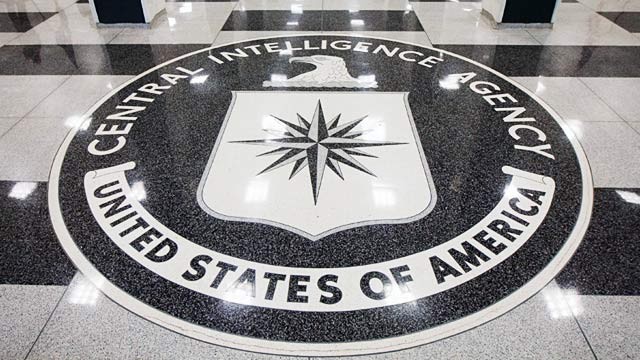WASHINGTON D.C.
A federal judge on Monday sentenced a former CIA officer to three years and six months in prison for leaking classified information to the New York Times, officials said.
Former CIA Officer Sentenced to 42 Months in Prison for Leaking Classified Information and Obstruction of Justice

A jury also convicted Jeffrey A. Sterling, of O’Fallon, Missouri, of obstruction of justice.
Sterling disclosed national defense classified information about a clandestine operational program concerning Iran’s nuclear weapons program to a New York Times reporter in 2003, according to authorities.
“The case revolves around an operation in which a former Russian scientist provided Iran with intentionally flawed nuclear component schematics. Mr. Sterling was convicted in January of disclosing the operation to James Risen, a reporter for The Times, who had revealed it in his 2006 book, “State of War.” Mr. Risen described it as a botched mission that may have inadvertently advanced Iran’s nuclear program,” according to a report in the New York Times
The NYT report stated: “Mr. Sterling, 47, spoke only briefly to thank the judge and court staff for treating him kindly as the case dragged on for years. Barry J. Pollack, a lawyer for Mr. Sterling, said jurors got the verdict wrong when they voted to convict. “That said, the judge today got it right,” he said.”
Federal officials maintain that Sterling leaked the classified information because he didn’t like the results of his administrative actions against the CIA.
“For his own vindictive purposes, Jeffrey Sterling carelessly disclosed extremely valuable, highly classified information that he had taken an oath to keep secret,” said U.S. Attorney Dana J. Boente. “His attempt to leverage national security information for his own malicious reasons brought him to this sentence today. I would like to thank the trial team and our partners at the FBI’s Washington Field Office and the Central Intelligence Agency for their hard work and commitment to this case.”
Sterling was found guilty by a federal jury on Jan. 26, 2015.
According to court records and evidence at trial, these are the facts, officials stated.
- Sterling was employed by the CIA from May 1993 to January 2002.
- From November 1998 through May 2000, he was assigned to a classified clandestine operational program designed to undermine the Iranian nuclear weapons program.
- He was also the operations officer assigned to handle a human asset associated with that program, a person identified at trial as Merlin.
- Sterling was reassigned in May 2000, at which time, he was no longer authorized to receive or possess classified documents concerning the program or the individual.
- In connection with his employment, Sterling, who is a lawyer, signed various security, secrecy and non-disclosure agreements in which he agreed never to disclose classified information to unauthorized persons.
- He acknowledged that classified information was the property of the CIA, and also acknowledged that the unauthorized disclosure of classified information could constitute a criminal offense.
- These agreements also set forth the proper procedures to follow if Sterling had concerns that the CIA had engaged in any “unlawful or improper” conduct that implicated classified information.
- These procedures permit such concerns to be addressed while still protecting the classified nature of the information.
- The media was not an authorized party to receive such classified information.
- In August 2000, Sterling pursued administrative and civil actions against the CIA.
- Evidence at trial showed that Sterling, in retaliation for the CIA’s refusal to settle those actions on terms favorable to him, disclosed information concerning the classified operational program.
- The New York Times reporter worked on an unpublished article in early 2003 and a book the reporter published in January 2006.
- Sterling’s civil and administrative claims were ultimately dismissed by the court.
- Evidence demonstrated that in February and March 2003, Sterling made various telephone calls to the reporter’s residence and e-mailed a newspaper article about the weapons capabilities of a certain country that was within Sterling’s previous clandestine operational assignment.
- While the possible newspaper article containing the classified information Sterling provided was ultimately not published in 2003, evidence showed.
- Sterling and the reporter remained in touch from December 2003 through November 2005 via telephone and e-mail.
- In January 2006, the reporter published a book that contained classified information about the program and a source.
- Evidence at trial showed that Sterling was aware of a grand jury investigation into the matter by June 2006 when he was served a grand jury subpoena for documents relating to the reporter’s book.
- Nevertheless, between April and July 2006, Sterling deleted the e-mail containing the classified information he had sent from his account in an effort to obstruct the investigation.

